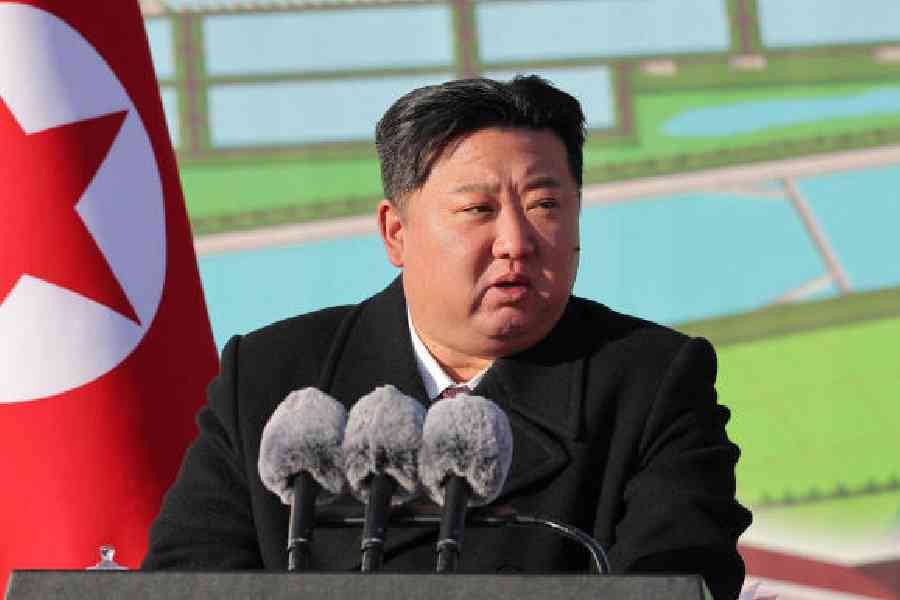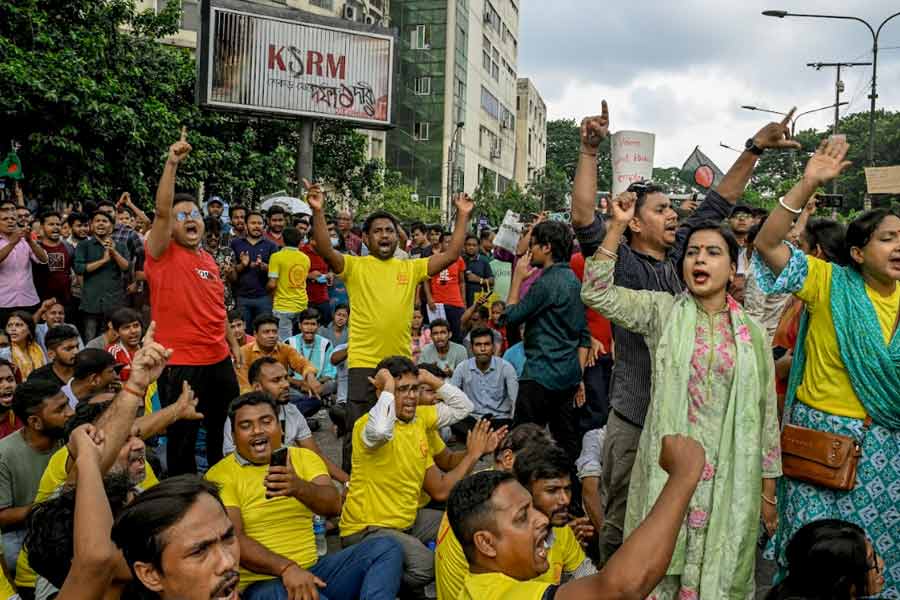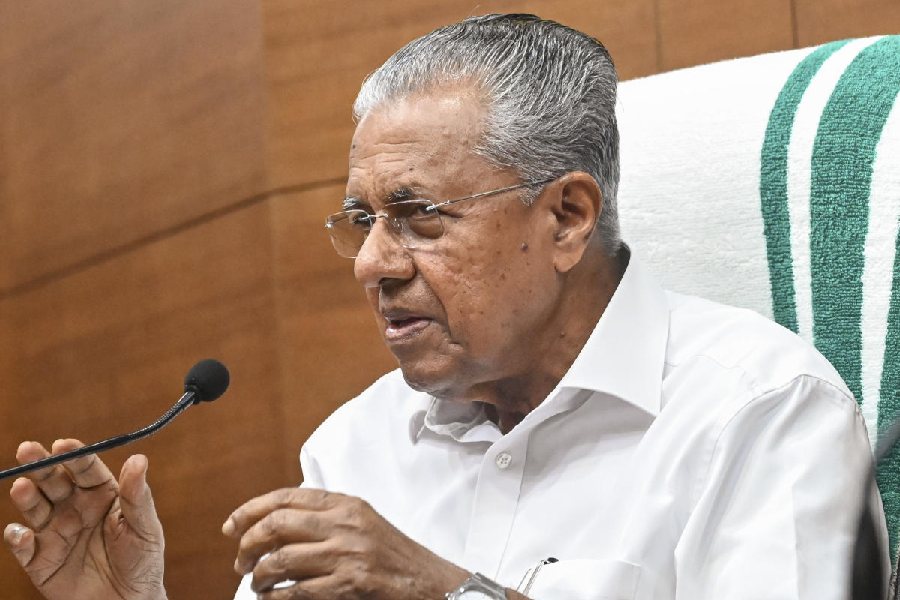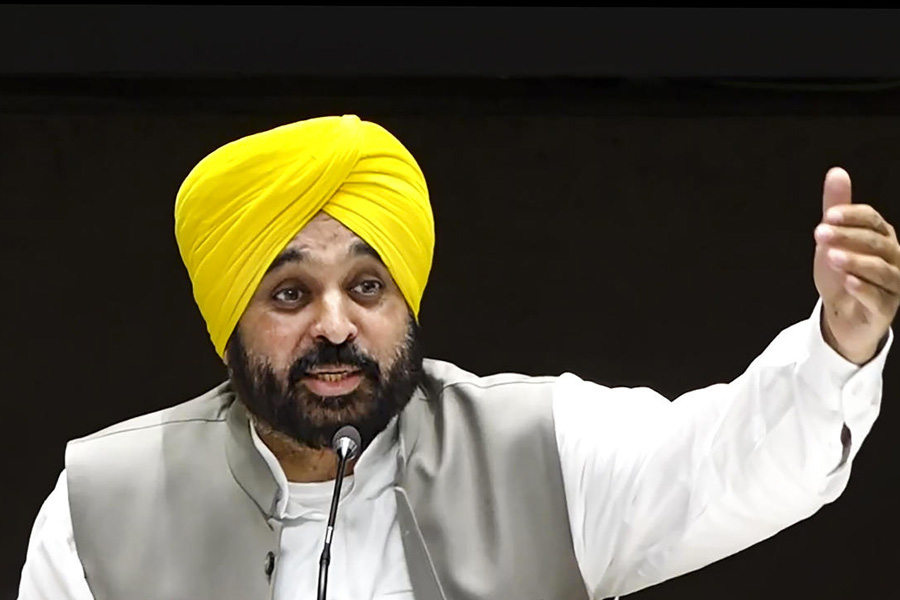For years, North Korea’s military has helped its leader, Kim Jong-un, keep control of his people and provide a buffer against the country’s sworn enemy, South Korea. With 1.3 million members, the North’s army is among the world’s largest conventional armed forces.
Now, with more than 11,000 North Korean troops fighting alongside Russian forces against Ukraine, it’s playing a more prominent role in Kim’s geopolitical gambit for much-needed cash and diplomatic leverage.
The troops that North Korea deployed are from its “Storm” Corps, special forces that are among the military’s best trained and most heavily indoctrinated. But they were badly prepared for drone attacks and the unfamiliar terrain far from their isolated homeland, according to South Korea’s National Intelligence Service.
More than 100 of them were killed and 1,000 others wounded in their first battles, the intelligence agency told South Korean lawmakers in a briefing on Thursday. The agency said a general-ranking officer may be among those killed, according to Lee Seong-kweun, a lawmaker who spoke to reporters after the closed-door briefing.
The agency said Kim appeared to be preparing to send more troops to Russia, as he sees Europe’s biggest conflict since World War II as an opportunity to advance his own military and diplomatic ambitions.
Here is what to know about the North Korean military and the troops Kim sent in his country’s first major intervention in an overseas conflict.
Weaknesses
The North’s special forces have trained mainly for sniper missions, urban warfare and infiltrations by sea, air and across Korea’s many mountains. They have not trained enough for drone and trench warfare waged over terrain like the mostly open and flat Russia-Ukraine front line, said Doo Jin-ho, a senior analyst at the Korea Institute for Defence Analyses in Seoul.
For two years during the pandemic when North Korea shut down, its special forces rotated in and out of guard-post duties along the country’s border with China, missing some of their regular training, Doo said.
The North Korean troops’ deployment was so rushed that it could take time for Russia to integrate them properly into its military, South Korean intelligence officials told lawmakers. They were thrust into battle after learning a smattering of military terms, like “open fire”, “artillery” and “in position” in Russian, potentially creating problems in battlefield communications, they said.
“From top to bottom, the North Korean military has had no live combat experiences for decades,” said Ahn Chan-il, a former North Korean army sergeant living in South Korea. “The troops must have had a crash course on drone and infantry warfare, but the question is how well they are familiarized with it.”
Constant fear
Once dismissed by some outside observers as young and inexperienced, Kim, the country’s leader, has proved a strong commander in chief who rules with what the South Korean government has called a “reign of terror.
His father and predecessor, Kim Jong-il, led his country with a “military-first” policy. He relied on the Korean People’s Army to hold the country together in the wake of a famine in the 1990s. In return, he allowed it to hog government resources, as well as to run profitable operations, such as mining, fisheries and smuggling.
Once Kim took over after his father’s death in 2011, he moved to subjugate the military elites, banishing or executing top generals. In 2015, Gen. Hyon Yong-chol, then the defence minister, was executed with an antiaircraft gun after he dozed off in Kim’s presence, according to South Korean intelligence officials.
Higher status
The soldiers sent to Russia were probably from poor families. The chance to go abroad and the prospect of cash can be huge incentives for them, Ahn said. Russia could pay as much as $2,000 a month per North Korean soldier, according to the South Korean intelligence agency. Although their government is expected to take most of it, the remainder can still be a huge sum for an ordinary soldier.
“The troops had little hope for their future in the North,” said Kim Kwang-Jin, another defector, who works as a senior analyst at the Institute for National Security Strategy in Seoul. “They go there at the risk of their lives, but they will also see it as an opportunity to make money and, if they are killed, to elevate their family’s status to that of the war dead.”
New York Times News Service











